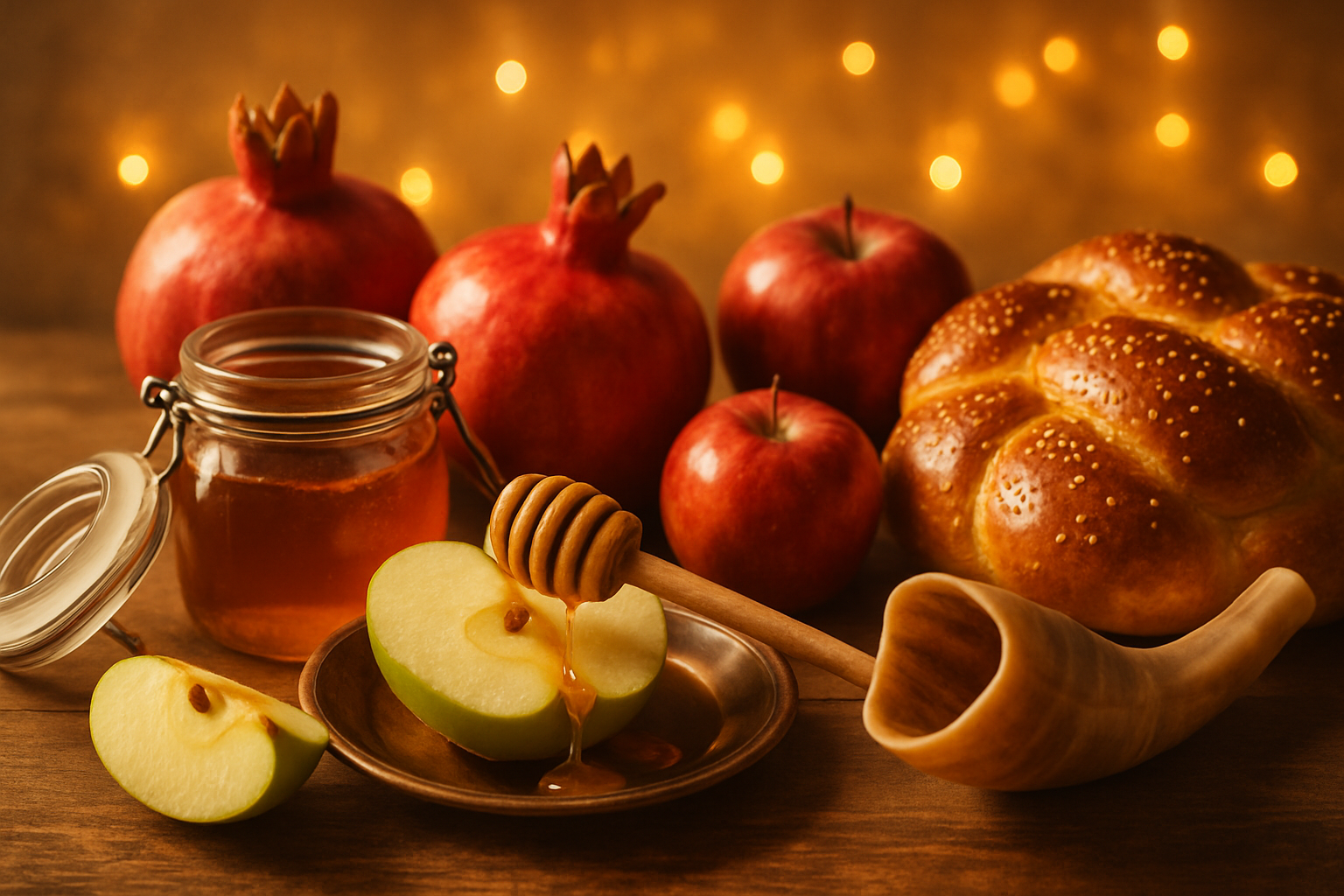Rosh Hashanah means “head of the year”, and is a festival celebrating the creation of the world, and marks a fresh start. The festival also marks a time of judgment, when Jews believe that God balances a person’s good vs. bad actions over the last year and decides what the coming 12 months will bring. It’s not just a time for celebration but also for reflection and a consideration of one’s priorities looking forward.
When is Rosh Hashanah?
In 2025, Rosh Hashanah begins at sundown on September 22nd and ends at sunset on September 24th.
How is Rosh Hashanah celebrated?
Many Jewish families will spend a significant amount of time over Rosh Hashanah at a synagogue. Aside from being a time for prayer and introspection, the festival is commemorated with meals at which a number of symbolic foods are eaten. For example, slices of apple are dipped in honey to symbolize a sweet new year ahead. Honey cake is eaten too for the same reason. Many Jews also eat a bread called challah (Just like they eat every week for Shabbat), which is baked into a round shape especially for Rosh Hashanah, to symbolise the circle of life and the end of the year/beginning of the next year.

Will my Jewish colleagues be available over the festival?
For many observant Jews, typical labor is not allowed on this holiday. This often includes travel and use of electronics so some colleagues may be completely offline between sundown on September 22nd and sunset on September 24th. Rosh Hashannah is one of the festivals that many non-observant Jews also take as time away from work.
What greeting can I give my Jewish colleagues?
During Rosh Hashanah, Jews will traditionally greet each other with L’shanah tovah, which means “for a good New Year”.
Where can I learn more?
For more information on Rosh Hashanah, see the links listed below. This time of year is packed with Jewish holidays, with 4 more following Rosh Hashanah!
• Jewish Virtual Library – Rosh Hashanah History & Overview
• PJ Library – Simaninm: The symbolic Foods of Rosh Hashanah
Are we missing a something? Let us know! 📧 resources@JewishERGs.org
